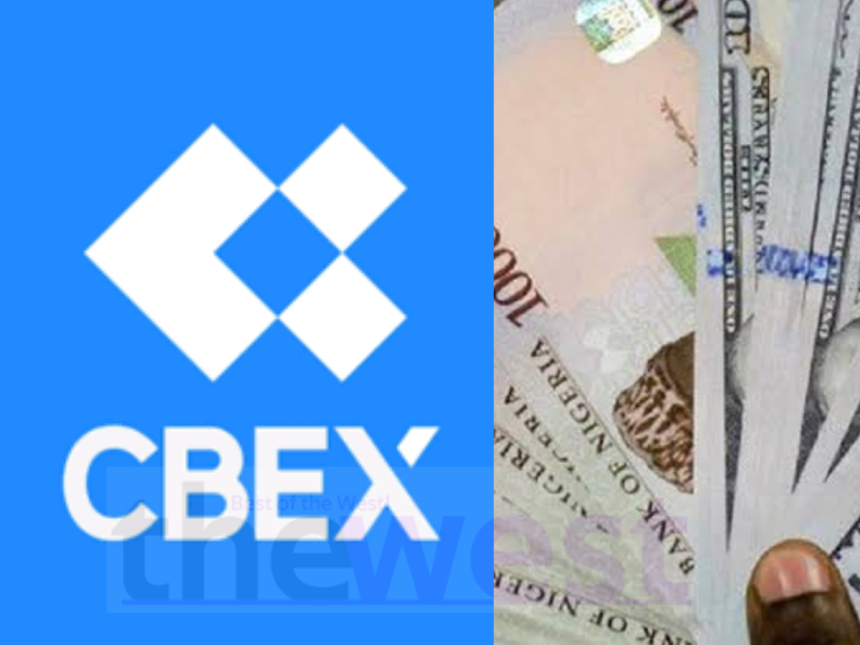The sudden collapse of the Central Bank of Exchange (CBEX), a digital asset trading platform that promised Nigerians 100% returns on investments within a month, has left thousands of investors reeling, with estimates suggesting over $935 million (approximately N1.5 trillion) in funds trapped or lost.
As the dust settles, Nigerians are grappling with the fallout and seeking answers: what went wrong, and how could a platform that appeared so promising unravel so quickly? This article delves into the real reasons behind CBEX’s crash, exposing systemic flaws, regulatory gaps, and lessons for the future.
The Allure of CBEX: A House Built on Sand
CBEX entered Nigeria in mid-2024, marketed as a revolutionary platform for trading digital assets, offering staggering returns and referral bonuses. Operating solely in U.S. dollars, it positioned itself as a hedge against Nigeria’s volatile naira and economic uncertainty.
Social media buzz and testimonials from early investors fueled its rapid growth, with some users reportedly withdrawing significant sums, further legitimizing the platform in the eyes of newcomers.
However, beneath the glossy promises lay telltale signs of a Ponzi scheme. Financial experts, including Aliyu Ilias and Kayode Olagunju, had warned that CBEX’s business model—guaranteeing high, consistent returns regardless of market conditions—was unsustainable.
Unlike legitimate trading platforms tied to transparent markets, CBEX offered no verifiable details about its operations, revenue streams, or asset management. Instead, it relied heavily on new investor funds to pay returns to earlier participants, a hallmark of Ponzi schemes like the infamous MMM, which collapsed in Nigeria in 2016.
The Tipping Point: Withdrawal Restrictions and Panic
The cracks in CBEX’s facade became undeniable in early April 2025, when the platform abruptly restricted withdrawals, citing a “security breach.” Users were told to wait until April 15 for resolution, but skepticism grew as CBEX demanded additional deposits—$100 for accounts under $1,000 and $200 for larger accounts—to “verify authenticity.” This move, widely criticized on platforms like X, mirrored the playbook of failing Ponzi schemes, where operators extract final funds before disappearing.
By April 11, reports surfaced of users’ account balances dropping to zero, and CBEX’s Telegram channels—key communication hubs—were locked.
The platform’s website, which had changed domains multiple times since 2024 (from cbex.cx to cbex39.com), became increasingly unresponsive.
In Ikeja, Lagos, distraught investors gathered at CBEX’s office, only to find it abandoned, with no representatives to address their concerns. Same happened in Ibadan, the Oyo state capital on Monday evening. These events triggered widespread panic, confirming fears that CBEX had crashed.
Regulatory Gaps and Missed Warnings
A critical factor in CBEX’s unchecked rise was Nigeria’s regulatory environment, which struggled to keep pace with the proliferation of online financial platforms.
The Securities and Exchange Commission (SEC) had issued warnings about unregistered platforms, and checks revealed CBEX was not listed in its database, rendering its operations illegal under Nigerian law. Yet, enforcement lagged, allowing CBEX to operate for months without scrutiny.
The newly signed Investment and Securities Act (ISA) 2025, which empowers the SEC to crack down on illicit schemes with penalties including 10-year jail terms, came too late to prevent CBEX’s damage.
Financial analyst Samson Akintaro noted that the absence of proactive oversight from agencies like the Central Bank of Nigeria (CBN) and the National Information Technology Development Agency (NITDA) left investors vulnerable. “Nigerians are hungry for quick returns in a tough economy, and platforms like CBEX exploit this desperation,” he said.
Warnings from individuals like Ub Edem Uman, who predicted CBEX’s collapse in March 2025, were dismissed by many as fearmongering. Social media defenders, including users like
@BlessedAjoke, insisted the platform was legitimate, citing temporary withdrawal pauses. This denial, coupled with CBEX’s aggressive marketing, drowned out cautionary voices until it was too late.
The Human Cost: Dreams Shattered
The crash’s impact on Nigerians has been devastating. Stories abound of individuals who invested life savings, borrowed funds, or staked family assets, lured by CBEX’s promise of financial freedom.
One user, anonymously sharing wallet screenshots, claimed to have lost $180,000, while others reported losses ranging from hundreds to tens of thousands of dollars. Beyond financial ruin, the emotional toll is palpable, with reports of despair and distrust spreading across communities.
Posts on X reflect the public’s anger and heartbreak, with some alleging that CBEX operators siphoned funds to private wallets before vanishing. While these claims remain unverified, they underscore the opacity that defined CBEX’s operations. For many, the crash is a grim reminder of past scams, reigniting calls for financial literacy and stronger consumer protections.
Lessons for Nigeria’s Future
The CBEX saga exposes deep-rooted issues that demand urgent action. First, regulatory bodies must bridge the gap between policy and enforcement. The SEC’s commitment to leveraging ISA 2025 is a step forward, but proactive monitoring of digital platforms is essential to prevent future scams.
Collaboration between the CBN, NITDA, and law enforcement could create a robust framework to vet and regulate online investment schemes.
Second, Nigerians must prioritize financial education. Experts like Olagunju lament that despite warnings, many ignored red flags due to greed or ignorance. Public campaigns, supported by media and civil society, could empower citizens to recognize unsustainable schemes, such as those promising guaranteed returns or requiring constant recruitment.
Finally, the government must address the economic conditions that make Ponzi schemes appealing. With inflation high and poverty affecting 38.9% of Nigerians in 2023, platforms like CBEX exploit desperation. Policies that boost job creation, stabilize the naira, and expand access to legitimate investment opportunities could reduce vulnerability to scams.
Moving Forward: A Call to Action
As investigations into CBEX’s collapse begin, the focus must shift to accountability and prevention. The SEC has urged victims to report losses, and there is hope that international cooperation—given CBEX’s reported ties to operators in China and Hong Kong—may lead to asset recovery. However, the likelihood of full restitution remains slim, as Ponzi schemes rarely leave traceable funds.
For Nigerians, CBEX is a painful but necessary wake-up call. “We can’t keep falling for the same tricks,” said Ilias. “Let’s learn, demand better oversight, and build a financial system that protects, not preys on, the people.” As the nation mourns its losses, the path forward lies in resilience, reform, and a collective commitment to safeguarding the dreams of millions.











